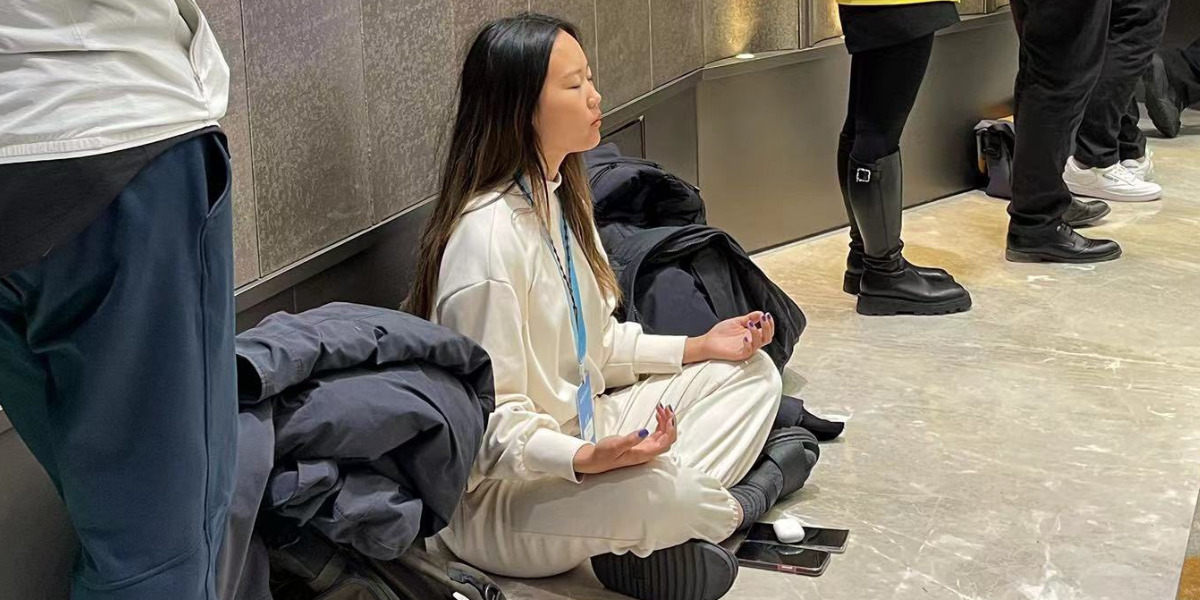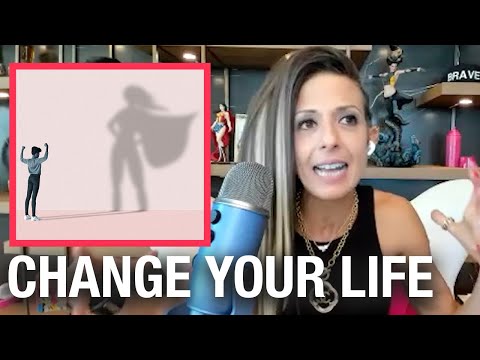The first time we spoke to Mona Fang in 2021, she was an undergraduate at the University of Illinois studying aerospace engineering.
She was also building her first business, Karma Trade.
Within 24 months, Fang dropped out of school, moved twice across the country, traveled worldwide, and started a new business called Omniio.
So what changed?
“I was really split on my path—whether to choose aerospace or a tech startup,” Fang says. “I felt like choosing aerospace was a safe path, but a startup was the riskier one, and it was something that I would always regret not taking.”
Fang’s globe-trotting entrepreneurial adventures in Illinois, Miami, Thailand, New York, and China over the past two years led to her settling in San Francisco.
While she might be pausing her nomadic rhythm, Fang’s just at the beginning of her lifelong commitment to entrepreneurship.
And it started by sorting through her closet.
Karma
Fang next spoke to us in September 2023—this time from mainland China. She’d been there for three weeks working with investors. Fang had visited China before to see relatives, but it was all business on this trip.
“Every time [I visit], there’s a major technological leap here,” Fang says. “It’s been a really good experience seeing how a large population of people can transact in a very high-tech way and see new possibilities of how retail and local retail can all be integrated.”
She continues to describe how individual store owners in China have the same technology tools as a large retail outlet or online store. Whereas in the United States, Fang sees a huge gap in solutions for traditional mom-and-pop retailers.
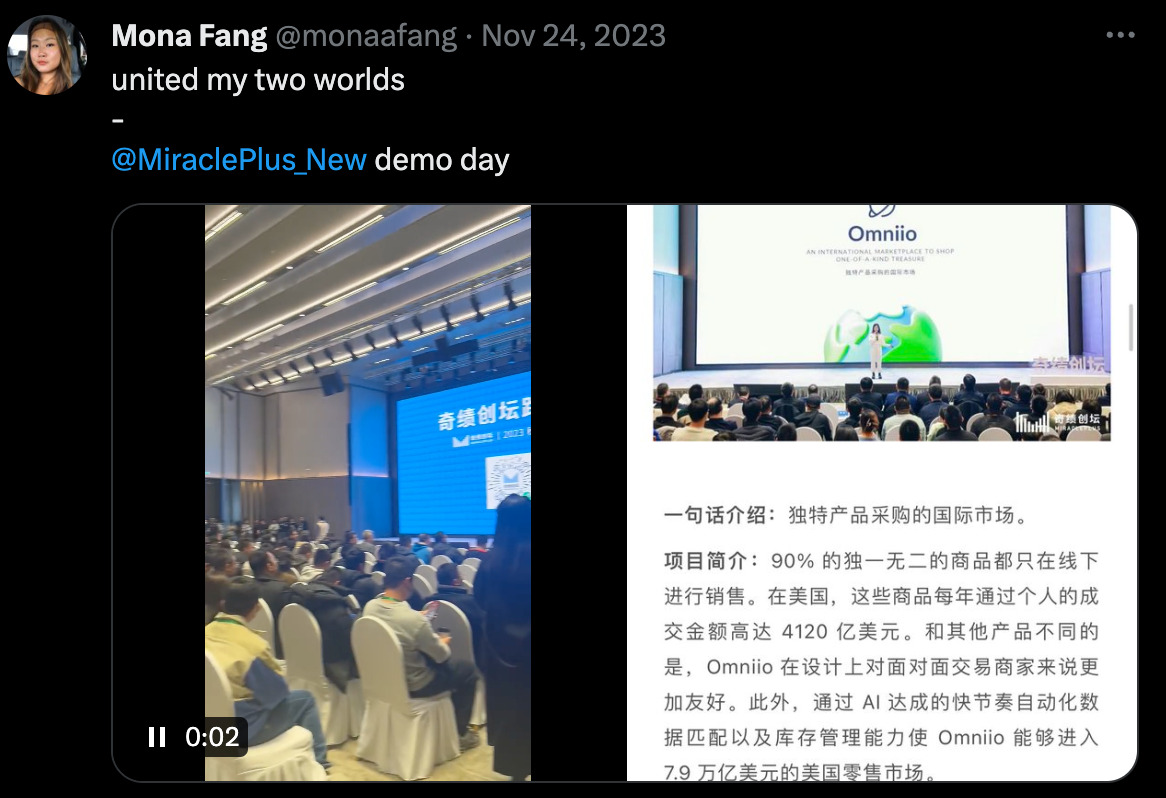
In 2021, Fang called us from a storage closet at her brick-and-mortar store in Champaign, Illinois. Although she articulates her ideas with the same intelligence and confidence as when she was a student, this time, there’s a calmness about her standing as a founder.
“The best people are people who aren’t just trying to sell you something but actually provide value,” Fang says. “And that’s really hard to make, especially in the world of tech where it takes two years, a year, or something to even launch a product, and you’re left in the dirt wondering if you should even be doing this at the same time.”
“The best people are people who aren’t just trying to sell you something but actually provide value.”
Fang talks like a seasoned entrepreneur because she is one. Her experimentation with entrepreneurship started back in high school when she sold clothes online for a side income because she was focused on academics and didn’t have time for a traditional in-person job for teens. That’s when she first noticed the inefficiencies in retail, specifically in selling secondhand goods.
“It wasn’t really necessarily about building a business for me personally, but it was more about [creating] some positive impact within the world,” Fang told us in 2021 from the storage closet.
“There’s a system that’s broken. Let’s fix it.”
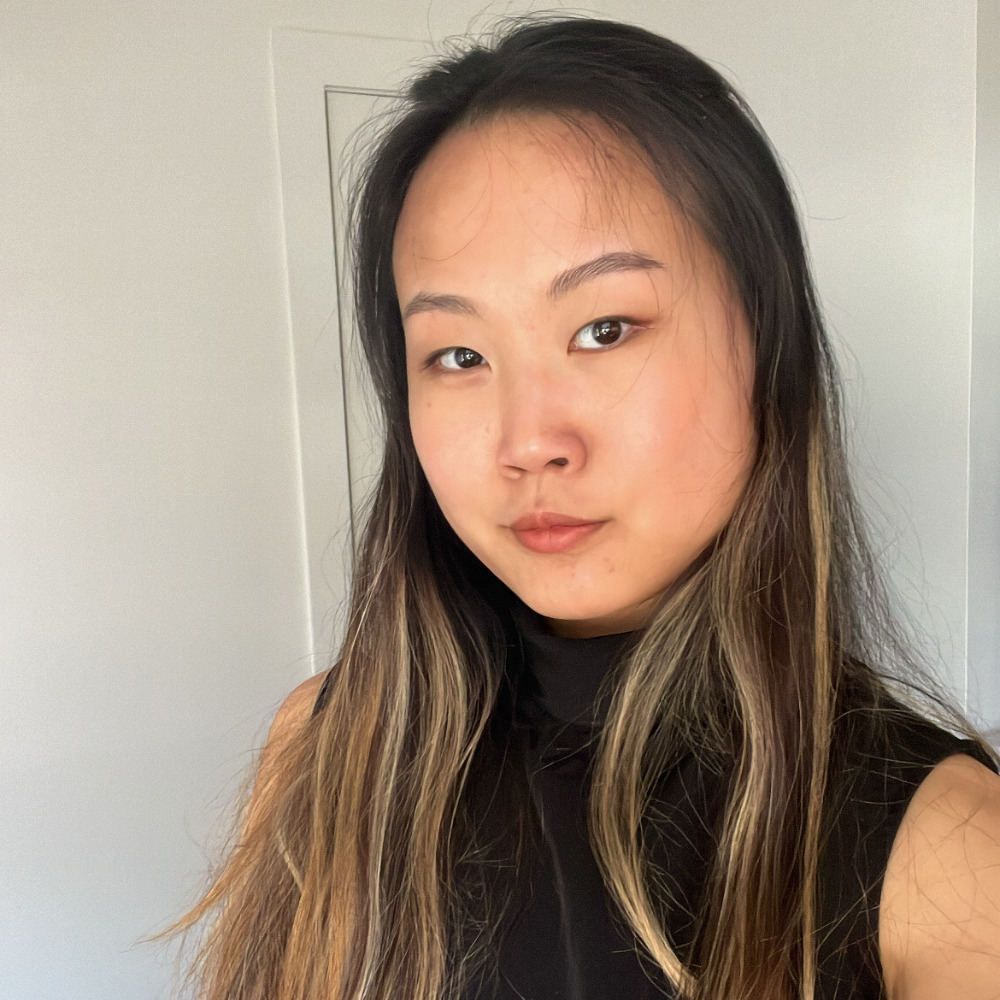
While she was buying books for her first semester at the University of Illinois, Fang was simultaneously starting Karma Trade, a digital currency business that bought and sold used clothing.
In her two years on campus, Fang built Karma Trade into a full-fledged business, including a retail store near campus that housed clothing and partnered with stores across the area that accepted a digital currency called KARMA.
Customers earned KARMA by donating clothes and spent KARMA to get new clothes for a small fee. Karma Trade helped recirculate 20,000 items of clothing and issue $1.7 million worth of KARMA.
Outside of funding, Fang’s toughest challenge with Karma Trade was clearly explaining the business. So she added another course to her busy workload. But instead of hauling books to a classroom, she took Foundr’s Seven-Figure Copywriting course taught by Arman Assadi.
“The biggest challenge for us was to explain [the digital currency] to people who had never used it before […] and turning over their previous conceptions of what fashion consumption should be,”
Fang told us. “We could paint them a picture of something much more and never seen before. So [the course] really helped us [explain the concept]. So that really did help us in bringing the word out to people—allowing us to communicate better to the people and telling them that, ‘Hey, this is actually going to help you.’”
Six months after we first spoke with Fang about Karma Trade, she faced a decision.
She was halfway to a bachelor’s degree and running a business. But she was given an unexpected opportunity.
And taking it would mean giving up everything she’d built so far.
Risk and Reward
In 2021, Fang told us that you must take a leap of faith to do something that’s never been done before in the market. At the time, she was referencing her business, Karma Trade. She didn’t know another leap was approaching.
During her junior year at Illinois, Fang was offered a 12-week fellowship from Hacker Fellowship Zero (HF0), an exclusive residency for top technical founders.
Her choice was to follow the safe path or bet on herself.
“I convinced my parents by saying, ‘Well, how many people can get a college degree versus raise venture capital?’” Fang says. “And that kind of got them to the other side.”
“I convinced my parents by saying, ‘Well, how many people can get a college degree versus raise venture capital?’”
Fang dropped out of college and moved to Miami for three months of intensive work on building a digital currency modeled after Karma Trade.
But Miami was a leap of faith that proved to be more enlightening than fruitful.
“I felt kind of out of place [with Karma Trade] because I wanted to ultimately just create software instead of moving around physical products,” Fang says.
The 12 weeks didn’t result in a revolutionary new blockchain currency, but the intense entrepreneurial environment forced Fang to figure out what was next: Go back to academia or go deeper down the rabbit hole of entrepreneurship.
At first, she chose neither.
She flew to Thailand to practice yoga and meditation at a monastery.
“It’s very difficult to be able to create anything when you’re driven by your own conscious thought, but when you’re able to step away from it, I think that’s really important,” Fang says.
“It’s very difficult to be able to create anything when you’re driven by your own conscious thought.”
Stepping away from entrepreneurship, school, and expectations gave Fang time to breathe, learn more about herself, and deepen her long-standing commitment to yoga and related practices. (Fang completed her 200-hour yoga teacher certification while in high school and taught yoga starting from the age of 18.) During a month in Thailand, Fang studied theravada buddhist meditation techniques, living a monastic lifestyle. When she headed back stateside, landing in New York City, she incorporated these experiences into her new lifestyle.
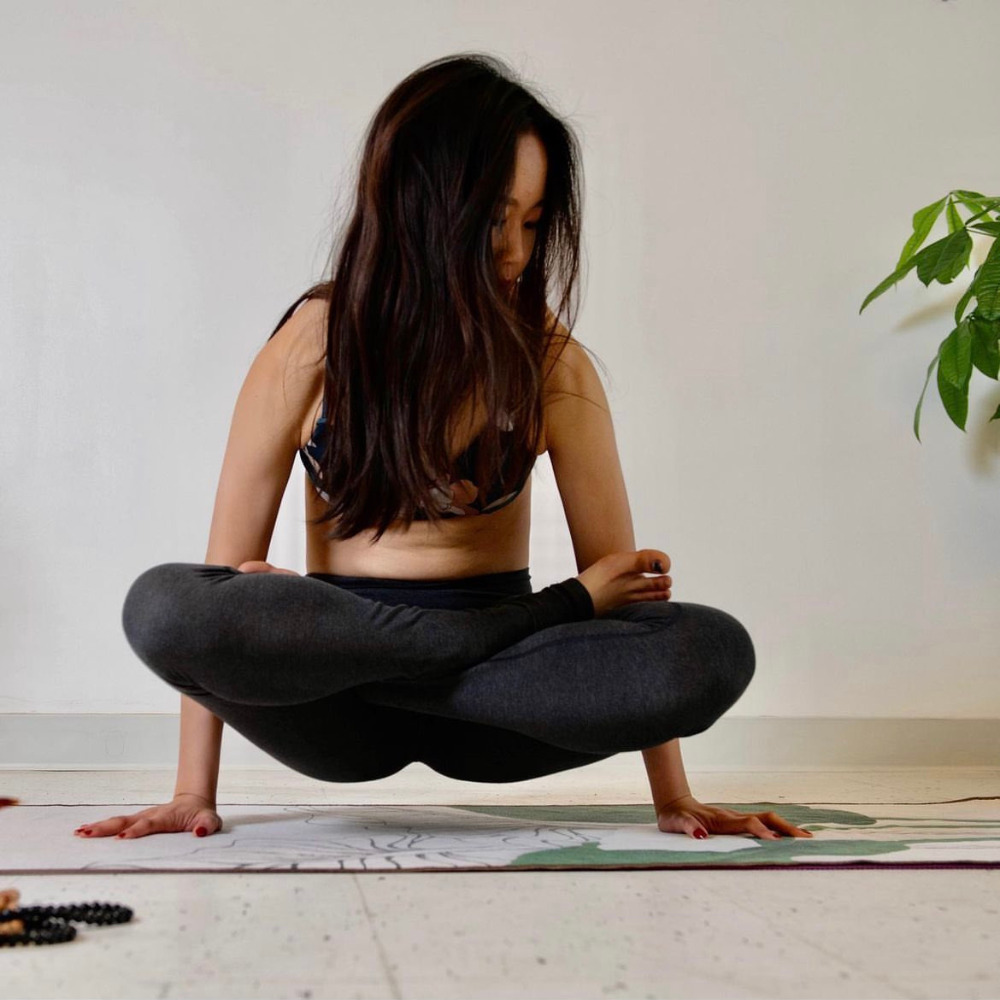
Fang’s spiritual exploration also informs the way she does business.
“One of the biggest fundamental concepts of Buddhism is nothing in this world is worth chasing after, and nothing in this world will bring you everlasting happiness. So that really does disrupt all of the thought that ‘Oh, I should suffer now so I can earn this great thing in the future, this great exit, this great IPO or something,” she says. “And what that ultimately teaches you is, well, if nothing’s satisfactory, then what are you going to do with your time?”
Serving Her Community
These days, Fang spends her time working on her new business, Omniio. The venture was inspired in part by a quote from Steve Jobs.
“You can’t connect the dots looking forward; you can only connect them looking backward. So you have to trust that the dots will somehow connect in your future.”
After Fang moved to New York, she invested her capital into a business idea that built on her experience with Karma Trade.
“When I had my storefront, we had 30,000 products, and maybe 10 people came to our store every day. So we had all this value that was just sitting there, and the big problem was it was just staying in the back of the closet, and we needed to get it seen,” Fang says.
While Fang ran her storefront, she hired people to take photos and upload data. The process was painstakingly manual. Fang understood the overstocking problem was common, especially among craft, vintage, and upcycle retailers.
“I would ask them, ‘Why do you have this stuff?’ And they said, ‘Oh, we’re trying to list this online,’” Fang says. “And they’re saying they’re trying to create an online store, but they realized all these X, Y, Z problems—the same problems that we experienced. And so I just really wanted to build a solution for them that’s very simple.”
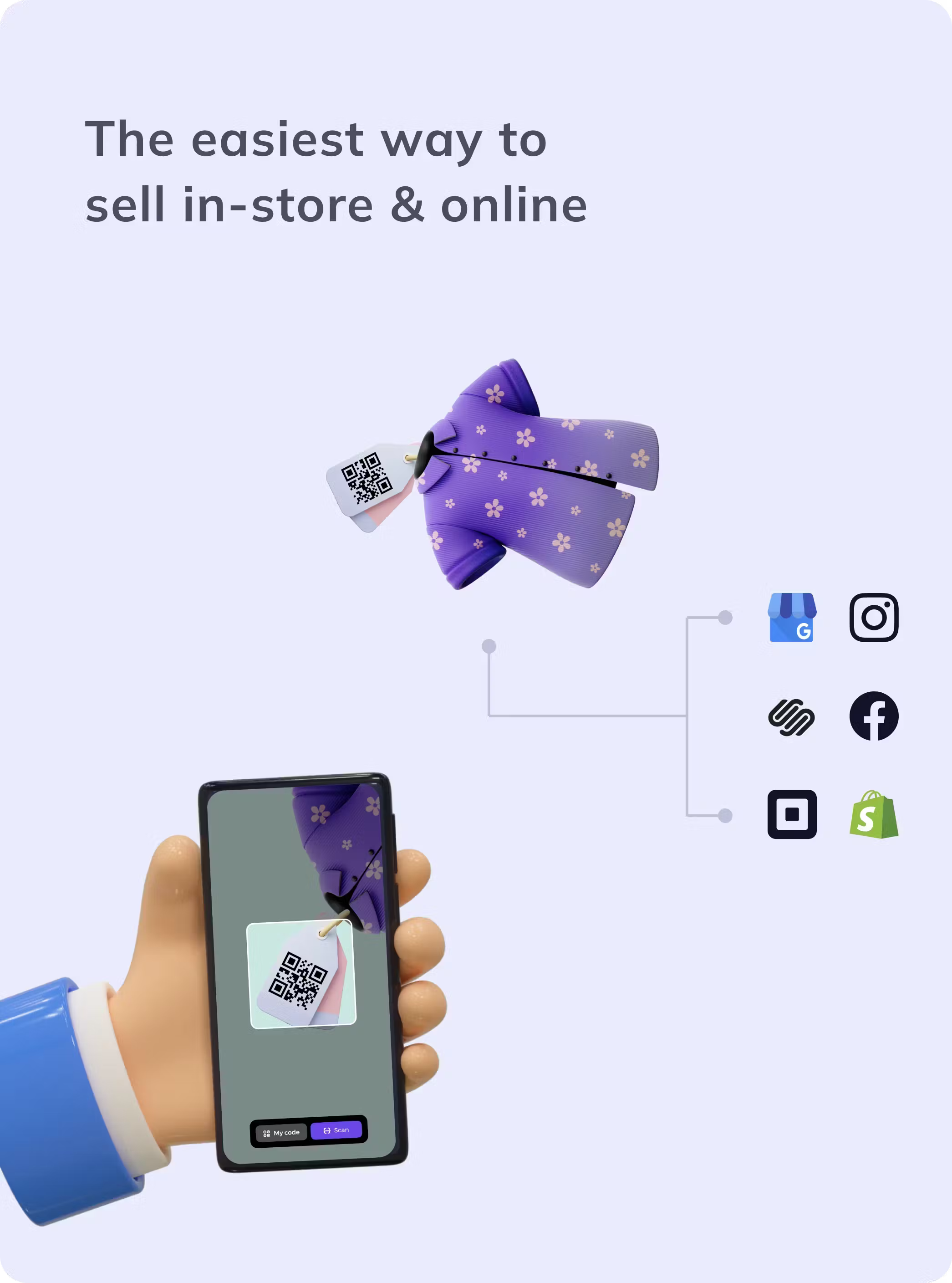
Fang credits the fellowship in Miami for teaching her about the importance of simplicity. Store owners didn’t need a blockchain currency. They needed something to solve the problem of overstock.
“It made me realize there were just so many missing pieces to the puzzle, and in the world of B2B [and] SaaS, you would think that all of these problems are solved,” Fang says. “But me, as a store owner, I just really felt neglected. I felt like nobody was paying attention to my problems at all, and there was nothing out there.”
From her conversations with fellow retailers, Fang knew that this demographic needed a way to quickly take a photo of a product and upload it to a digital storefront with the data and info easy to display. She describes it as a “Snapchat for retail inventory.”
“At the core of it, it’s really just about supporting people with their independent businesses and not having to rely on buying from bulk manufacturers,” Fang says, “I learned about the people in the seller community, and I just really want to support them.”
“I learned about the people in the seller community, and I just really want to support them.”
Using her own funds, Fang built Omniio into a working MVP. Then, she quickly received her first round of funding, which enabled her to develop Omniio so that it could link to retailers’ Shopify storefronts and increase upload speeds to three seconds per product by auto-filling the title, price, and description. Omniio also allows retailers to sell products in-store and online simultaneously without additional hardware or tech.
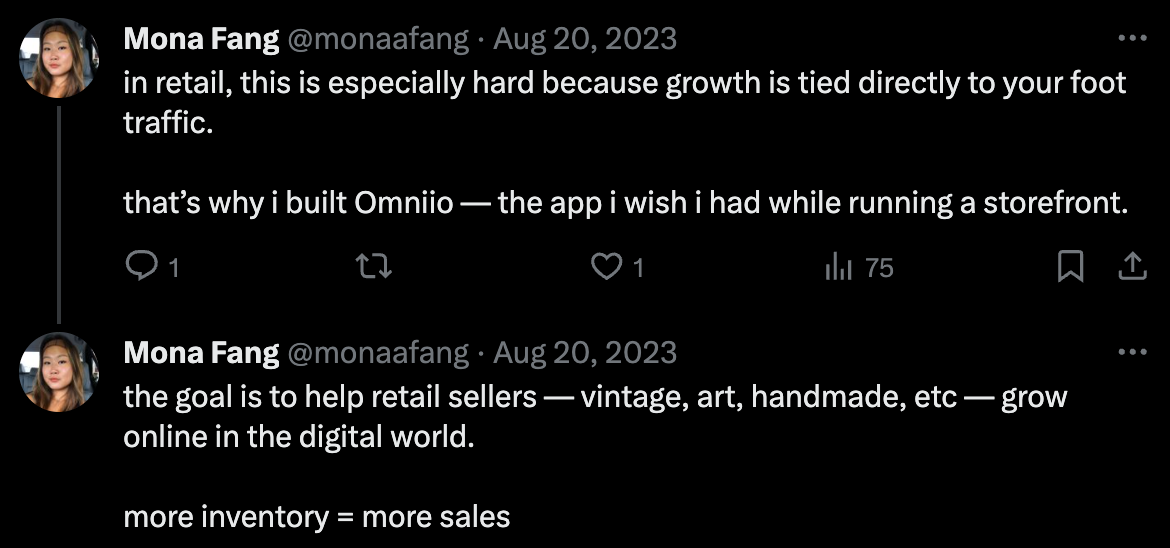
Leap of Faith
By the fall of 2023, when we talked with Fang remotely from China, she was finalizing her second funding round and planning to move to San Francisco. The next steps are building a team and scaling Omniio to help as many retailers as possible.
Even though Fang’s taking another leap of faith with Omniio, she says she understands more about her purpose from the connection between entrepreneurship and spirituality. The best entrepreneurs, she says, have a more selfless mentality instead of “hustling” or “grinding” for a reward.
“They actually really enjoy what they do, or they really enjoy the feeling of impact rather than what the impact will bring them,” Fang says
Fang is forging ahead into an industry that resists selflessness. But even in her early 20s, her resume of entrepreneurship has prepared her to be ready for whatever comes next.
“You can achieve more than when you believe you can. When I was 17, I didn’t think this would be possible,” Fang told us when she was 21.
“You can achieve more when you believe you can. When I was 17, I didn’t think this would be possible.”
Now, at age 23, “what’s possible” is just the beginning.
Get the same course that helped Fang launch her business.
The post This Founder Believes Entrepreneurship is a Spiritual Practice appeared first on Foundr.
